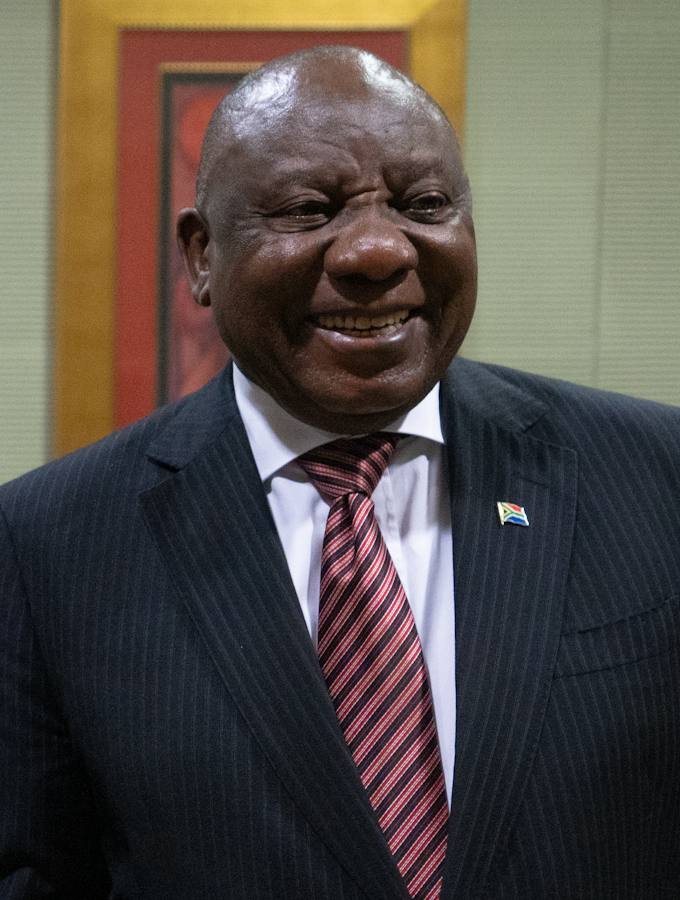BEEI Launches Fifth Phase, Brings 200,000 Youth into Schools as New Workers
President Cyril Ramaphosa, writing in his weekly newsletter, hailed the return of this groundbreaking initiative after a year-long pause, describing it as a “first day at school” for thousands of young adults across the country.

- Country:
- South Africa
In a significant milestone for youth employment and education support in South Africa, the fifth phase of the Basic Education Employment Initiative (BEEI) was launched today, welcoming nearly 200,000 young South Africans into the workforce—not as learners, but as vital contributors to the nation's education system.
President Cyril Ramaphosa, writing in his weekly newsletter, hailed the return of this groundbreaking initiative after a year-long pause, describing it as a “first day at school” for thousands of young adults across the country.
“The initiative returns to townships, villages, inner cities, farms, and special needs schools, bringing hope, energy, and incomes to places where opportunities are too often out of reach,” he said.
Empowering Youth and Strengthening Schools
Established in 2020 under the Presidential Employment Stimulus, the BEEI was created to tackle the country’s chronic youth unemployment challenge while strengthening public education. The programme is implemented by the Department of Basic Education, in partnership with provincial education departments, and is currently funded through the Unemployment Insurance Fund's (UIF) Labour Activation Programme and national government allocations.
Through the BEEI, young people are placed in over 20,000 schools across all nine provinces, where they take up meaningful roles designed to build both workplace skills and school capacity.
President Ramaphosa emphasized the initiative’s dual focus: building the future workforce while immediately enhancing classroom effectiveness.
“This programme develops essential work skills—time management, teamwork, IT, administration, and problem solving—that employers say they need,” the President said.
Roles That Make a Difference
The roles offered to participants are diverse, inclusive of both academic and non-academic functions, ensuring that youth at all skill levels have access to work experience.
-
Curriculum Assistants support subjects like Mathematics, Science, and Technology.
-
Reading Champions cultivate literacy and a culture of reading in classrooms.
-
Lab and Workshop Assistants aid in technical subjects.
-
IT and Admin Assistants enhance school administration and digital operations.
-
Care and Support Assistants work with School Support Teams to help at-risk learners.
-
Others help with essential maintenance, such as painting, fixing infrastructure, or nurturing school vegetable gardens and playgrounds.
-
Sports, Arts, and Culture Facilitators help revive creative programmes, build learner engagement, and spark pride in school communities.
Each role is tied to the broader goal of creating an environment that is conducive to learning, while offering youth critical exposure to workplace demands.
A Testimony of Impact
The President spotlighted the journey of Sibongile Joni, a Curriculum Assistant at Emsengeni Primary School in the Eastern Cape in 2023. Her time in the programme helped her transition into a permanent role at the NGO Masinyusane, which focuses on educational development.
Joni offered heartfelt advice to the new intake:
“Be reliable. Your consistency builds trust. Treat every task—no matter how small—with excellence. Build professional relationships and embrace every learning opportunity. Start strong. Stay consistent. You’re building your future today.”
Her success story embodies what the initiative aims to achieve: not just a job for today, but a foundation for future growth.
From the Classroom to Careers
President Ramaphosa reminded readers that many of the participants have ambitions that stretch beyond the school gates. Whether they aim to pursue further studies, formal employment, or entrepreneurship, their time in the BEEI will leave them better equipped.
“They won’t be starting from scratch. They will carry invaluable skills and real-world experience,” the President said.
He urged employers across sectors to open their doors to these youth and recognize the resilience, discipline, and potential they have demonstrated.
“They’ve worked in high-pressure, resource-limited environments. They’ve met deadlines and taken responsibility. Mentor them, support them, and help take their potential to the next level.”
Supporting Youth Entrepreneurship
President Ramaphosa also emphasized the need to better support aspiring young entrepreneurs, particularly those who were not selected for BEEI posts.
“We need to find new ways to support young people who want to create their own jobs and generate local value. That means better access to finance, training, markets, and networks,” he noted.
While acknowledging the limitations of the programme’s reach, he reiterated that the Presidential Employment Stimulus has shown what government can achieve when it prioritizes youth inclusion in the economy.
Still Much More to Do
Despite the tremendous scale and impact of the BEEI, the President acknowledged that South Africa’s youth unemployment crisis remains severe. He called for continued national commitment, from both the public and private sectors, to ensure young people are given the opportunities they need to thrive.
“This is but one initiative addressing youth unemployment. We still have much more to do,” he said.
The fifth phase of the BEEI is expected to run for several months, giving participants time to build meaningful experience, form valuable relationships, and gain insight into the world of work. It is also expected to contribute significantly to school functionality, learner performance, and teacher support.
As the country celebrates this new cohort’s entry into the workplace, the BEEI continues to stand as a shining example of how government policy can intersect with social upliftment, giving young South Africans not just hope—but opportunity.










